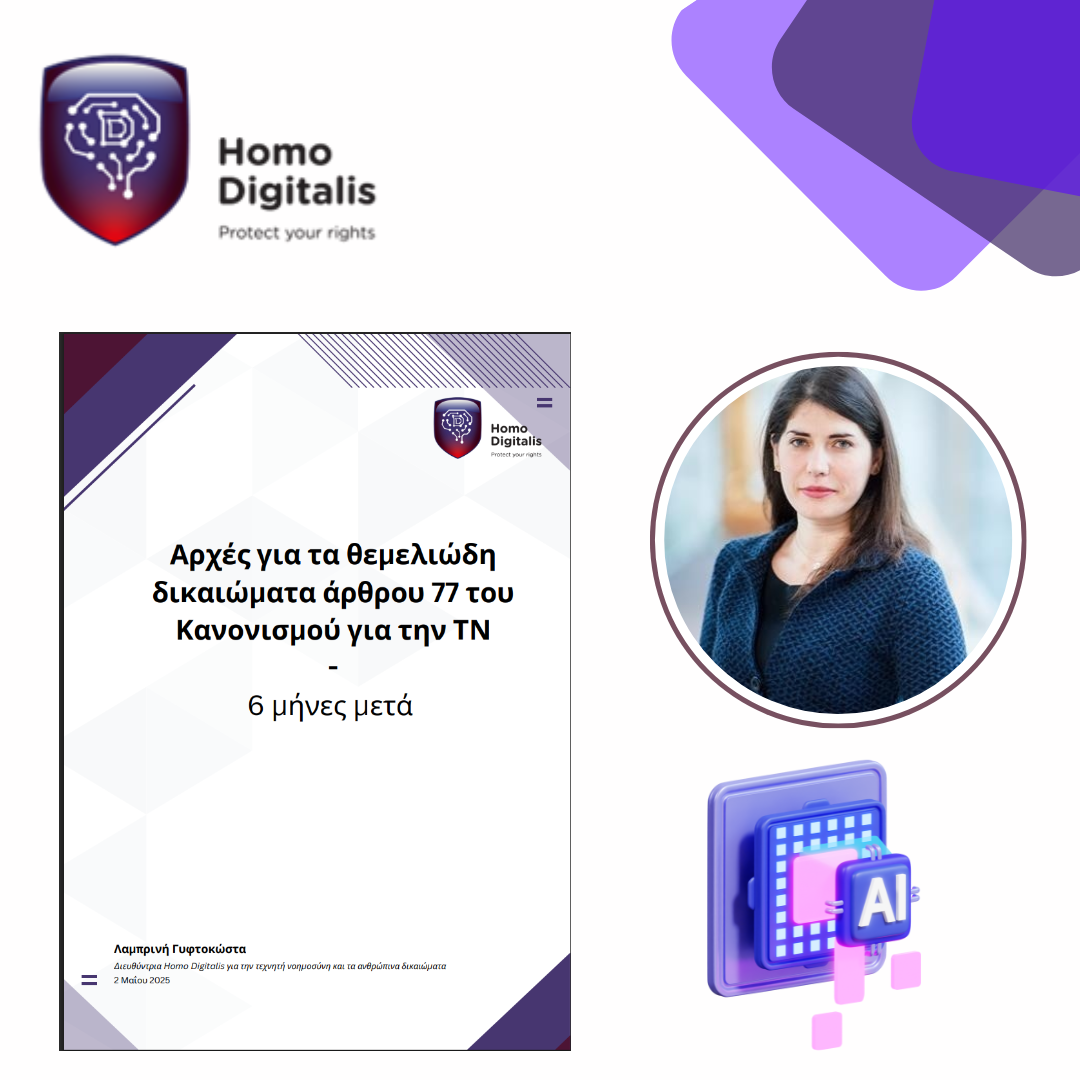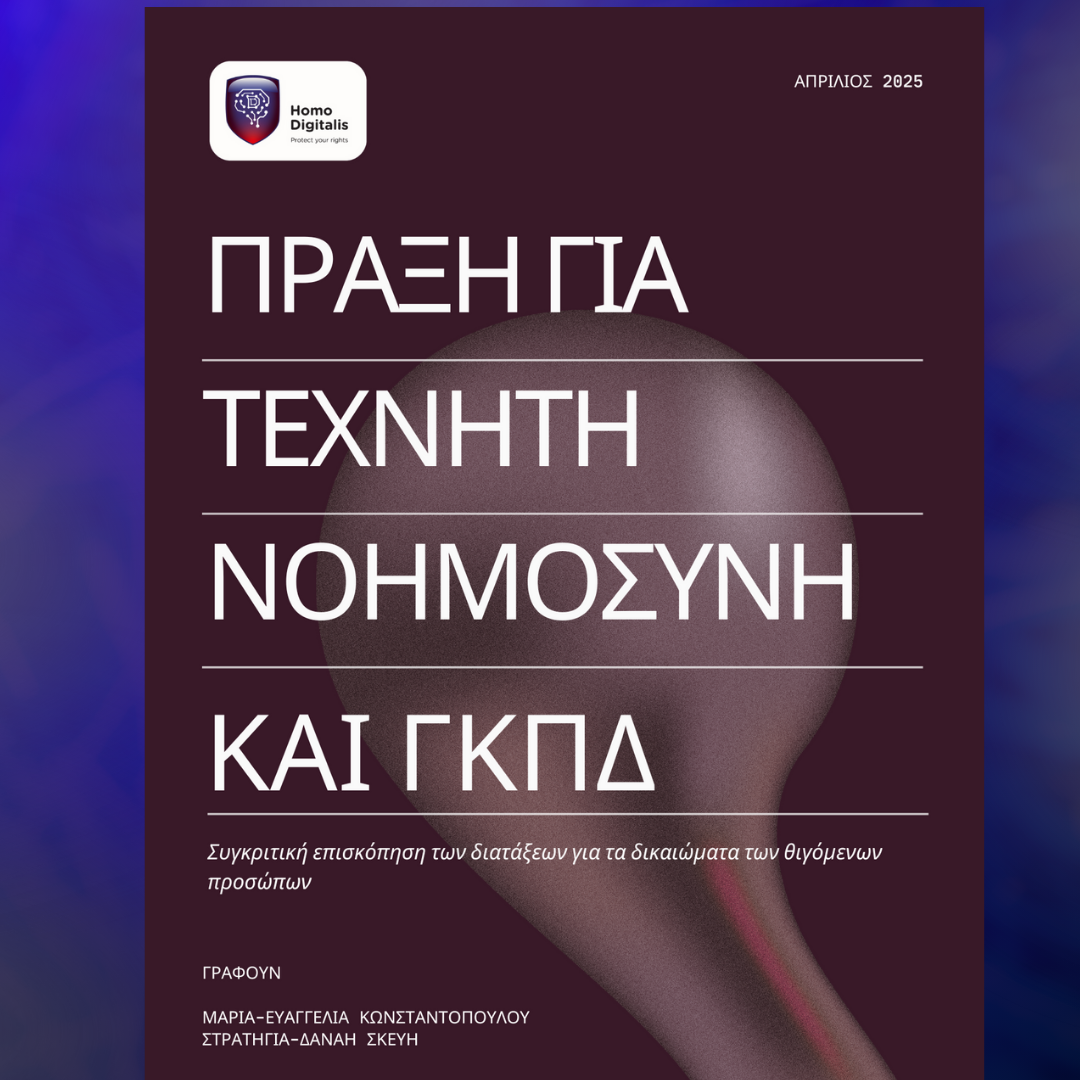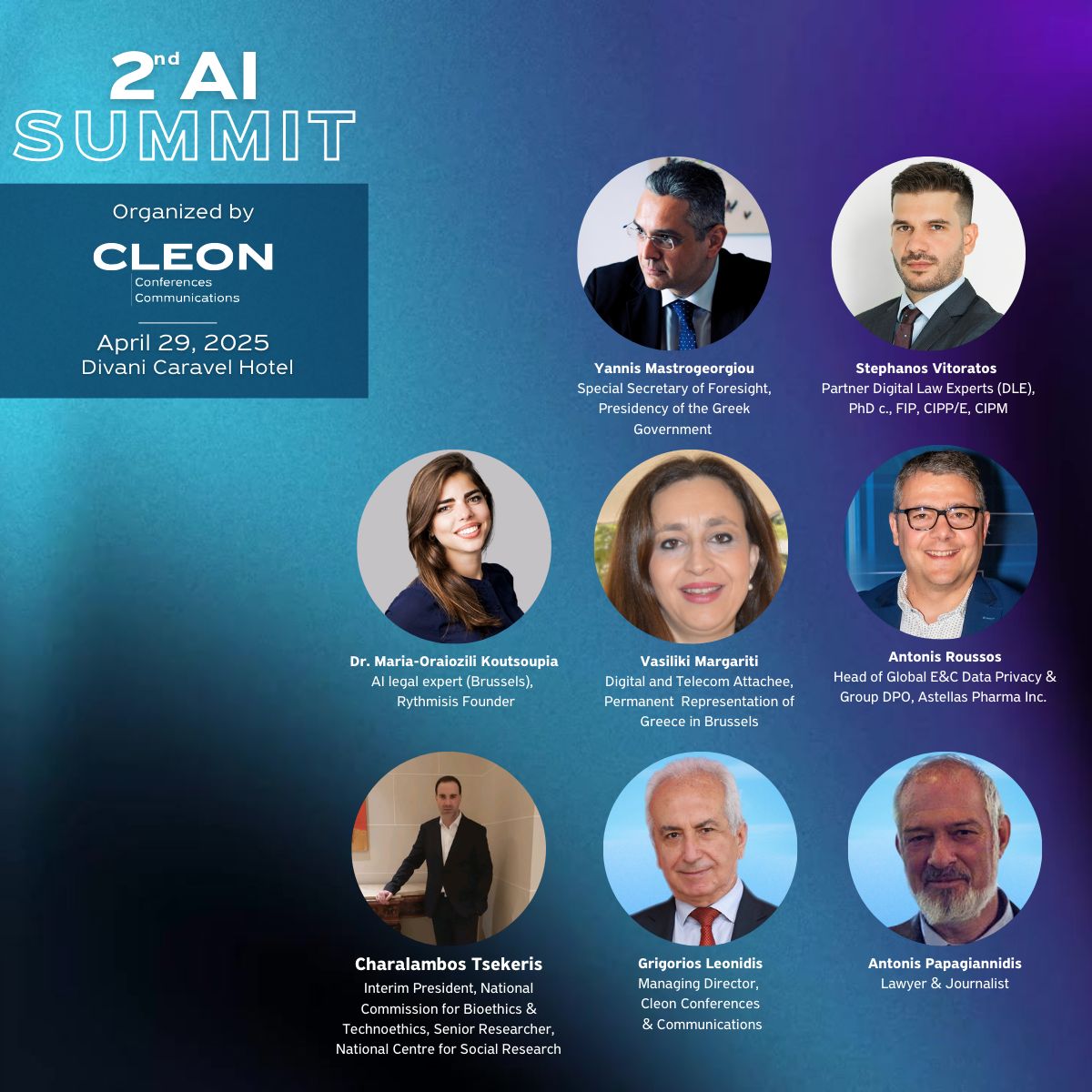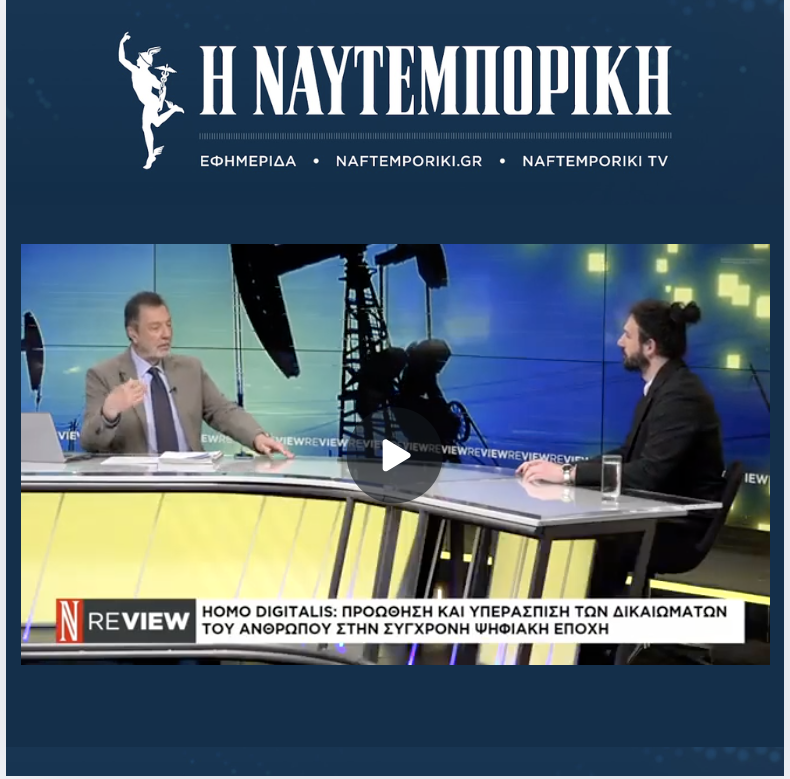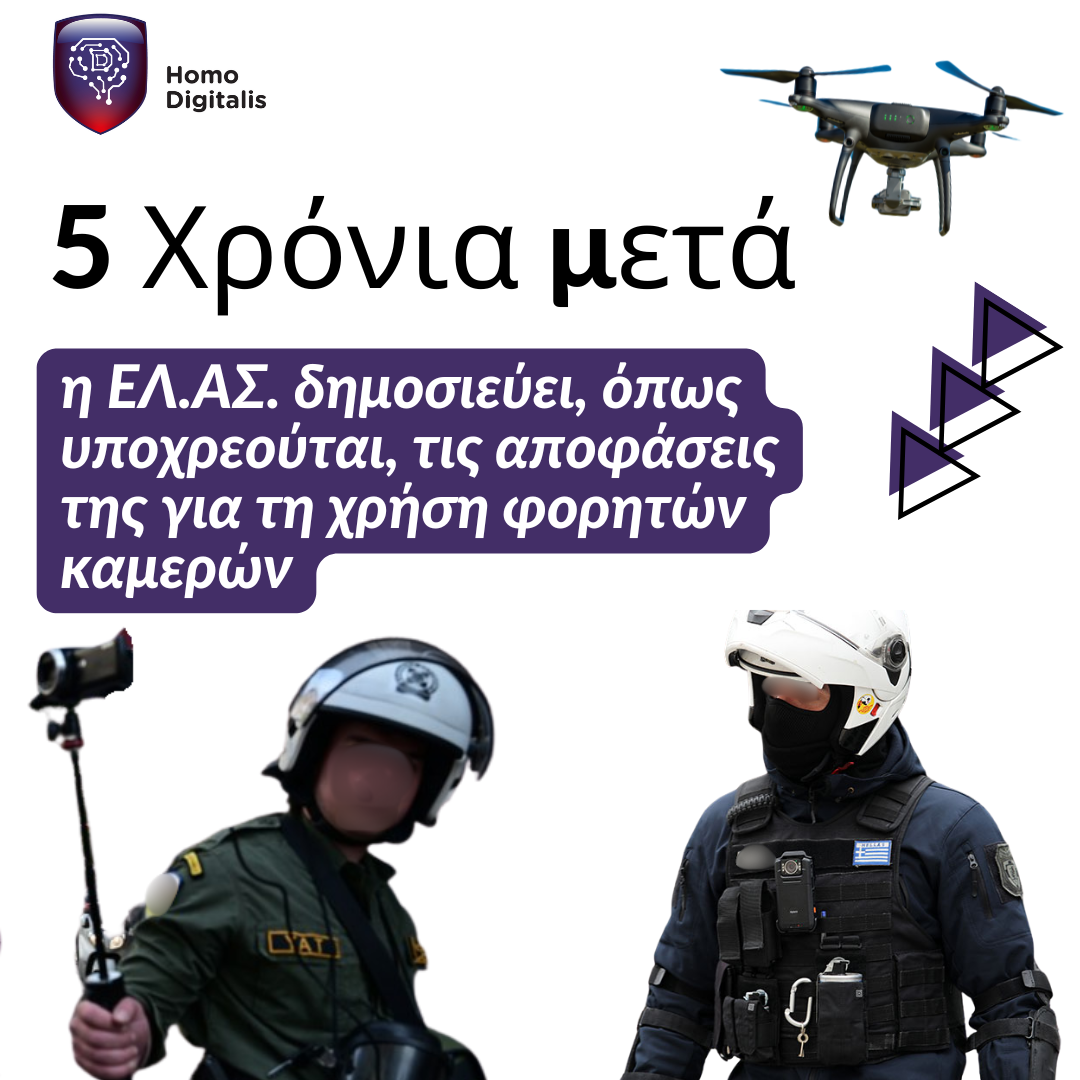We call the Greek DPA to temporarily block the inclusion of the Personal Number on new ID cards until the necessary risk mitigation measures are implemented!
Since June, the Hellenic Police (EL.AS.) has been issuing ID cards that display the Personal Number (P.A). for citizens who already have one. As of tomorrow, June 28, 2025, it will no longer issue an ID card to any citizen who is eligible for a P.A. but has not yet completed the required issuance process.
In its Opinion 1/2025, the Hellenic Data Protection Authority (HDPA) states that displaying the P.A. on ID cards poses risks and must therefore be accompanied by specific mitigation measures.
However, despite the fact that the Greek State proposed certain measures to the HDPA, which were approved as appropriate, it has failed to implement them, thereby exposing citizens to severe risks of identity theft.
For example, one of the proposed measures was the adoption of legal provisions prohibiting private entities from keeping photocopies of ID cards. This legislative step must be paired with coordinated and intensive public awareness campaigns to ensure that citizens know they should not allow copies of their physical ID to be retained.
At the end of its analysis, the HDPA concludes that, since the risks associated with including the P.A. on ID cards remain, once a sufficient period has passed during which mitigation measures are applied and public authorities are equipped with the necessary tools for digital reading of the P.A., the display will no longer be necessary and the obligation to display the P.A. on the ID card should be lifted.
For these reasons, on Friday, June 20, we submitted a formal request (Ref. No. Γ/ΕΙΣ/5621/20-06-2025), urging the HDPA to exercise its powers under Article 58(2)(f) of the GDPR, and impose a temporary restriction on processing, by prohibiting the display of the P.A. on ID cards until the essential mitigation measures are properly in place to address the significant risks arising from this practice.
Our request is available here (only in EL).
Schools in Messinia at the Heart of Digital Awareness
From March 31 to May 7, the NGO Homo Digitalis visited 11 primary and secondary schools across Messinia, bringing education and awareness on internet safety closer to students.
During the workshops held in Arfara, Dorio, Eva, Thouria, Kalamata, Kyparissia, Pylos, Filiatra, Finikounda, and Chora, a total of 554 students engaged with key issues of the digital world, such as: cyberbullying, online safety, recognition and understanding of deepfakes, and responsible use of social media.
Raising awareness and informing both children and adults is a vital step toward a safe and healthy experience in the digital space.
The initiative was supported by the “Captain Vassilis and Carmen Constantakopoulos” Foundation and it will continue with new sessions from September to December 2025.
If your school is located in Messinia and would like to host these free educational sessions, please contact the Homo Digitalis team at info@homodigitalis.gr.
Article 77 of the AI Act: 6 months after the designation of the Fundamental Rights Authorities
On the first official deadline set by the Artificial Intelligence Regulation (AI Act), it required member states to appoint one or more authorities in accordance with Article 77 for the protection of fundamental rights by November 2, 2024.
Today, May 2, 2025 — six months after the deadline — 25 out of the 27 European countries have appointed a total of 210 authorities, a number that seems staggering and at the same time sends a strong message about how seriously these countries take the issue of fundamental rights. But does it reflect reality?
With this brief study, we aim to provide answers to the following questions:
-
What is the purpose of Article 77 of the AI Regulation?
-
Which authorities have been appointed by the member states to date?
-
What powers does the AI Regulation actually grant to these regulatory authorities, and what obligations arise from Article 78 of the AI Regulation regarding the confidentiality of information?
-
Who are the four national authorities that have taken on this role, what are their existing and new powers under the AI Regulation?
Through a case study, our Director on Fundamental Rights and AI, Lamprini Gyftokosta, attempts to explore how these authorities will cooperate, while also raising some questions that will undoubtedly concern us over time.
You can read our study here (EL).
We publish our 4th Study on the AI ACT – Comparative overview of the provisions on the rights of affected individuals
Today, April 11, 2025, Homo Digitalis publishes its fourth study on the provisions of Regulation 2024/1689 on Artificial Intelligence (AI), widely known as the AI Act.
This study focuses on the right to explanation and the right of individuals not to be subject to automated decision-making.
Specifically, the use of artificial intelligence systems for making automated decisions is continuously expanding in both the public and private sectors, with significant impacts on the individuals subjected to them.
Therefore, this study examines the legal remedies available to individuals affected by decisions made through the use of AI. The analysis focuses on the right to an explanation of individual decision-making as provided in Article 86 of Regulation 2024/1689. However, since the protection of affected individuals is not limited solely to these provisions, the analysis extends to the right to contest individual decision-making, which—under appropriate interpretation—is based on Article 22 of Regulation 2016/679, known as the GDPR.
The study’s authors are two distinguished legal professionals and volunteer members of Homo Digitalis: Maria-Evangelia Konstantopoulou and Stratygia-Danai Skevi (listed alphabetically).
You can read our 4th study here.
We remind you that we have published three previous studies on Regulation 2024/1689 and its transposition into the Greek legal order: in October (impact assessment on fundamental rights), November (AI governance and competent supervisory authorities), and December (prohibited practices) of 2024, respectively.
This intensive effort aims to contribute constructively to the public dialogue in Greece and at the EU level in the field of artificial intelligence, and it is the result of significant support from the European Artificial Intelligence & Society Fund.
Successful Awareness-Raising Activities in Larissa during February – March
A series of important awareness-raising activities were successfully carried out in Larissa during the February–March period. Our member, Tasos Arampatzis, represented Homo Digitalis with great success by voluntarily leading several awareness and educational initiatives in the region.
In particular, in collaboration with Frosso Ktistaki — PhD holder and piano professor — they delivered an educational presentation on the theme Cybersecurity, Music, and Human Emotions. Within this context, they discussed the human factor in cybersecurity, the impact of personal data breaches, and how music can serve as a helpful tool. The event took place at Pyrgetos High School on February 24.
Additionally, at the end of March, Tasos represented Homo Digitalis in presentations to 5th and 6th grade students of two co-located primary schools in Larissa — the 15th and 43rd Primary Schools. The topic of the presentations was cyberbullying.
We Sponsor and Speak at the 15th InfoCom Security 2025!
We are excited to announce that Homo Digitalis is once again offering its sponsorship to the 15th InfoCom Security 2025! This special anniversary edition will take place on April 2 & 3 at the Athens Conservatory.
Our Board Member, Konstantinos Kakavoulis, will proudly represent us at the event and deliver the opening keynote speech on the second day of the conference!
Registrations are open and free!
You can secure your spot and explore the full two-day agenda here.
A huge thank you to the organizing team (SmartPress S.A., IT Security Pro) for the excellent collaboration in making this event possible!
Registration for the 2nd AI Summit of Cleon Conferences, under the auspices of Homo Digitalis, is now open
CLEON Conferences & Communications is organizing the 2nd AI SUMMIT under the auspices of the Ministry of Digital Governance, SEKEE, ISACA, Homo Digitalis, and Rythmisis.
The conference will be moderated by lawyer and journalist Antonis Papagiannidis, while a speech will also be given by Stefanos Vitoratos, co-founder of Homo Digitalis and lawyer.
The conference will take place on Tuesday, April 29, at the Divani Caravel Hotel in Athens.
Don’t miss the opportunity to stay informed about the latest developments and trends in AI!
You can register here.
Homo Digitalis Interview on NAFTEMPORIKI TV’s "REVIEW" with Takis Spiliopoulos
Yesterday evening, Homo Digitalis was featured on NAFTEMPORIKI TV’s show “REVIEW”, hosted by journalist Takis Spiliopoulos.
Representing our team, Eleftherios Chelioudakis participated in an engaging discussion about our work in public awareness and policy shaping.
Key Discussion Points
–Targeted commercial advertising and its ethical implications
–Addiction to digital platforms
–AI legislation and its impact on society
NGI TALER – Privacy-Focused Digital Payments
We also discussed NGI – The Next Generation Internet and its open funding calls under NGI TALER, a European Commission co-funded initiative aimed at developing a privacy-focused digital payment platform using open-source principles.
(Interested applicants can apply here)
Other Featured Guests
The episode also included insightful discussions with:
–Antonis Ballis, Assistant Professor of Financial Technology, on cash and digital transactions
–Dimitris Papastergiou, Minister of Digital Governance, on the future of digital policy
A huge thank you to NAFTEMPORIKI TV, Takis Spiliopoulos, and the entire journalistic team, including Liana Thanou, for the kind invitation and the opportunity to share our work.
Watch the full interview here.
From Secrecy to Transparency: The Five-Year Battle for the Publication of Police Camera Operation Decisions
Strategic legal action takes time, but its outcomes benefit society as a whole, strengthening public trust in institutions.
In December 2020, Homo Digitalis, in collaboration with Reporters United and The Press Project, formally requested access to the Hellenic Police’s decisions regarding the operation of drones and other portable cameras in public spaces, as stipulated in Article 12 of Presidential Decree 75/2020. Despite the legal obligation to publish these decisions publicly, the police refused access, disregarding the transparency required by law.
A few months later, in May 2021, we filed a joint complaint before the Hellenic Data Protection Authority (HDPA), citing repeated non-compliance by the police—at least 67 times over a short period. The HDPA launched an investigation into the legality of these practices.
In early 2024, we submitted a request for access to HDPA documents to better understand the progress of the investigation. Correspondence between the Hellenic Police and the HDPA revealed that, even as of March 2024, the police continued to argue that Presidential Decree 75/2020 did not require them to publish camera operation decisions, despite the HDPA’s opposing view.
Yesterday, through a report by journalist Giannis Bazaios in Efimerida ton Syntakton, we learned that such a decision had been published on the Hellenic Police’s website. Indeed, upon verification, we found that as of February 17, 2025, the police had changed their practice and begun publishing these decisions as required by law. The report was published today online here.
From the initial refusal in 2020, it took five years for this change to be implemented. We now eagerly await the final decision of the HDPA and the conclusion of its investigation, which will establish a definitive framework for transparency and accountability within law enforcement.


